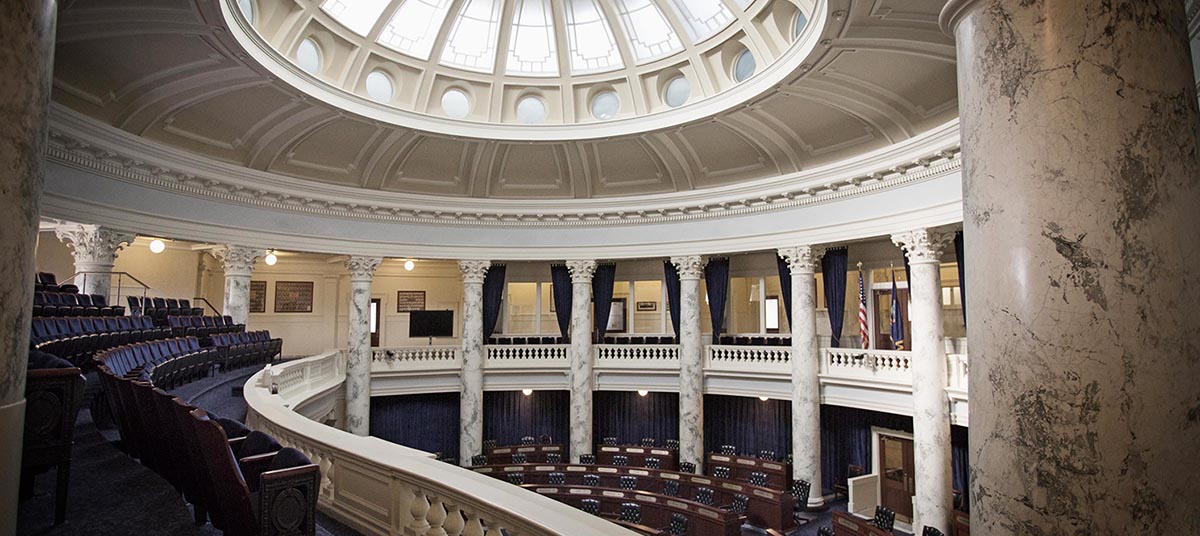Crucial Tax Updates for Seniors: Navigate the OBBBA Changes

Significant changes are on the horizon with the introduction of the Omnibus Budget Reconciliation Bill for 2025 and Beyond, also known as the One Big Beautiful Bill Act (OBBBA). These legislative updates offer vital new tax provisions designed to support seniors, helping them adeptly manage financial obligations. A key highlight is the newly implemented deduction for individuals aged 65 or older, granting a $6,000 deduction per eligible individual. This comes with specific income limitations and joint filing requisites. As seniors adapt to these developments, understanding the broader tax landscape—including adjustments to standard deductions, charitable contributions, and vehicle interest deductions—becomes crucial. This article provides a detailed analysis of these changes, equipping seniors with the knowledge to enhance their tax strategies effectively while ensuring compliance.

New Deduction for Seniors: Under the OBBBA, a fresh senior deduction has been introduced, offering significant tax relief to older taxpayers. This updates the previously suggested exemption for Social Security income, which couldn't be executed due to budgetary constraints during the Congressional Budget Reconciliation Process.
This senior deduction applies to individuals aged 65 and above. For married couples meeting the age requirements, a $12,000 deduction is available when filing jointly, while single filers can claim a $6,000 deduction. However, this begins to phase out for a Modified Adjusted Gross Income (MAGI) over $75,000 for individuals, or $150,000 for joint filers. The deduction is reduced by 6% of the MAGI surpassing these thresholds. For instance, a single senior taxpayer with a MAGI of $80,000 sees their $6,000 deduction decrease to $5,700. The deduction phases out entirely for single filers with income beyond $175,000 and married filers exceeding $250,000.
This above-the-line deduction is available regardless of whether taxpayers itemize or opt for the standard deduction, valid from 2025 to 2028. Primarily, this provision aims to reduce fiscal strain for seniors while keeping Social Security benefits taxable under a budget-balanced strategy.

Revised Gambling Loss Limits: Amendments within the OBBBA adjust the deduction on gambling losses, permitting taxpayers to write off only up to 90% of these losses incurred during a taxable year. Importantly, this still adheres to the ceiling of gains from such wagering. This revision takes effect starting 2026.
The implication for senior recreational gamblers is significant, as gambling earnings affect overall taxable status. While losses diminish reported income, they don't reduce taxable Social Security benefits or Medicare Part B premiums. Thus, the full tally of gambling winnings reflects in the AGI, potentially escalating taxable social benefits and premiums, inadvertently creating a "penalty" scenario for seniors, given that net losses can lead to heightened taxes and Medicare costs.
Enhanced Standard Deductions: The OBBBA permanently enhances the standard deductions for seniors and all taxpayers. The law augments deductions by $750 for single filers, $1,125 for the head of household, and $1,500 for those filing jointly. Thus, for 2025, standard deductions stand at $31,500 for joint filers, $23,625 for heads of household, and $15,750 for single and married filing separately individuals. Seniors aged 65 and older get an additional $2,000 for single/head of household filers and an extra $1,600 per eligible spouse for joint filers, on top of the new senior deduction.
These deductions adjust for inflation to ensure continuity in financial benefits, affording seniors on fixed incomes relieved financial strain through enhanced income retention.

Tax Rate Adjustments: The OBBBA preserves tax rates while incorporating inflation adjustments, shielding seniors from bracket creep and ensuing tax burden increases. By retaining and indexing tax rates to inflation, the law helps ease financial charges faced by seniors reliant on fixed incomes.
Car Loan Interest Deductions: From 2025 to 2028, seniors benefit from a new car loan interest deduction due to the "One Big Beautiful Bill Act." It addresses interest from vehicle-secured loans used to acquire cars, SUVs, and motorcycles, up to a $10,000 yearly deduction cap, provided the vehicle was purchased post-December 31, 2024. Vehicles must weigh under 14,000 pounds and be U.S.-assembled, excluding RVs and campers. This deduction applies irrespective of deduction itemization.
Charitable Contributions: The OBBBA introduces a charitable deduction, especially advantageous for seniors not itemizing deductions. With this above-the-line option, seniors can deduct up to $1,000 for singles or $2,000 for married filers, encouraging charitable support through deductions and reducing taxable income. This applies to donations made via cash, check, or credit card, necessitating the same documentation standards as itemized donations.
Environmental Tax Credits: Those investing in renewable energy should take note: the OBBBA expedites the phase-out of eco-tax credits. The credit for electric vehicle purchases ends post-September 30, 2025, and credits for home solar systems and energy-saving improvements end after December 31, 2025. Staying informed about these phase-out dates is paramount to aligning precautionary purchasing with legislative mandates.
Existing, Critical Tax Concerns for Seniors
Qualified Charitable Distributions (QCDs): Seniors inclined towards charitable giving can leverage QCDs from their IRAs after age 70½, reducing taxable income and potentially decreasing taxable Social Security income. These distributions must be made directly to a qualifying charity and are not included in taxable income. They also count as the RMD, effective for individuals aged 73 and older, with contribution limits—up to $108,000 for 2025.
Home Modifications: Seniors making medically necessary home modifications may qualify for deductions, beneficially reducing taxable income through qualified medical expense deductions. To qualify, these expenses should surpass the AGI threshold of 7.5%, including home changes like ramps or door widenings, requiring healthcare provider validation, and potentially increasing property value. Appropriate documentation ensures deductible claims.
Home Care: Taxpayers can deduct home care expenses intended for medical purposes, covering wages for nursing or caregiver services, facilitating deductible medical expenses. Although not restricted to licensed professionals, the care must warrant professional healthcare oversight. Household employers may need to file Schedule H for significant medical caregiver compensation, with adherence to tax/ labor regulations advised to avoid errors and emphasis suggested on using payroll services for compliance and administrative ease.
Final Note: Navigating new tax laws demands attention, especially concerning scams targeting seniors. Be wary of enticing offers or unexpected links and avoid suspicious communications. When in doubt, consult with trusted contacts or reach out to our office for protection and sound financial handling.
For further questions or assistance in optimizing these tax positions, contact us at Tax Time 365, where we specialize in supporting senior and small business owner financial compliance.
Want tax & accounting tips and insights?
Sign up for our newsletter.
Contact
32158 Camino Capistrano A353
San Juan Capistrano, California 92675